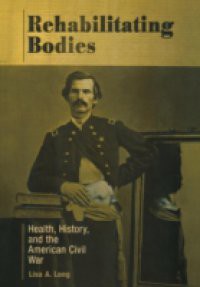The American Civil War is one of the most documented, romanticized, and perennially reenacted events in American history. In Rehabilitating Bodies: Health, History, and the American Civil War, Lisa A. Long charts how its extreme carnage dictated the Civil War's development into a lasting trope that expresses not only altered social, economic, and national relationships but also an emergent self-consciousness. Looking to a wide range of literary, medical, and historical texts, she explores how they insist on the intimate relationship between the war and a variety of invisible wounds, illnesses, and infirmities that beset Americans throughout the late nineteenth and early twentieth centuries and plague us still today.Long shows how efforts to narrate credibly the many and sometimes illusory sensations elicited by the Civil War led writers to the modern discourses of health and history, which are premised on the existence of a corporeal and often critical reality that practitioners cannot know fully yet believe in nevertheless. Professional thinkers and doers both literally and figuratively sought to rehabilitateto reclothe, normalize, and stabilizeCivil War bodies and the stories that accounted for them.Taking a fresh look at the work of canonical war writers such as Louisa May Alcott and Stephen Crane while examining anew public records, journalism, and medical writing, Long brings the study of the Civil War into conversation with recent critical work on bodily ontology and epistemology and theories of narrative and history.

